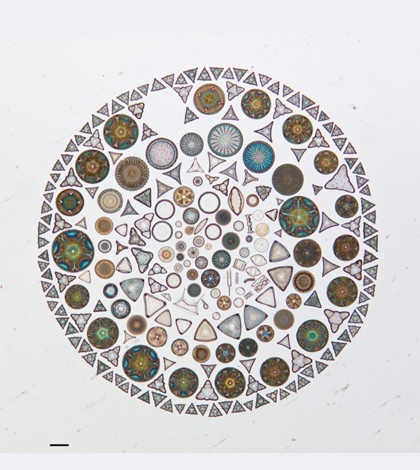Marine microbes boost algae growth, revealing complexities of ocean ecology

Diatoms are intricate single-celled algae. (Credit: California Academy of Sciences)
Marine microbes are responsible for producing nearly half of the Earth’s oxygen, but relatively little is known about their ecology. Researchers at the University of Washington have discovered that single-celled algae known as diatoms grow faster when certain marine bacteria are around, according to a UW press release.
These microbes, called sulfitobacter, are known to produce auxin, a hormone that some land-based bacteria produce as well. The growth-inducing effects of auxin on land plants are well-studied, but now the same mechanism has been observed in marine algae.
Sulfitobacter exchange nutrients with diatoms, creating auxin in the process. The UW researchers say that this interaction is just one — possibly of many — that helps explain how marine ecosystems are so productive. They note, however, that further research is needed to determine how the ocean’s food web will react to climate change.
Top image: Diatoms are intricate single-celled algae. (Credit: California Academy of Sciences)





0 comments